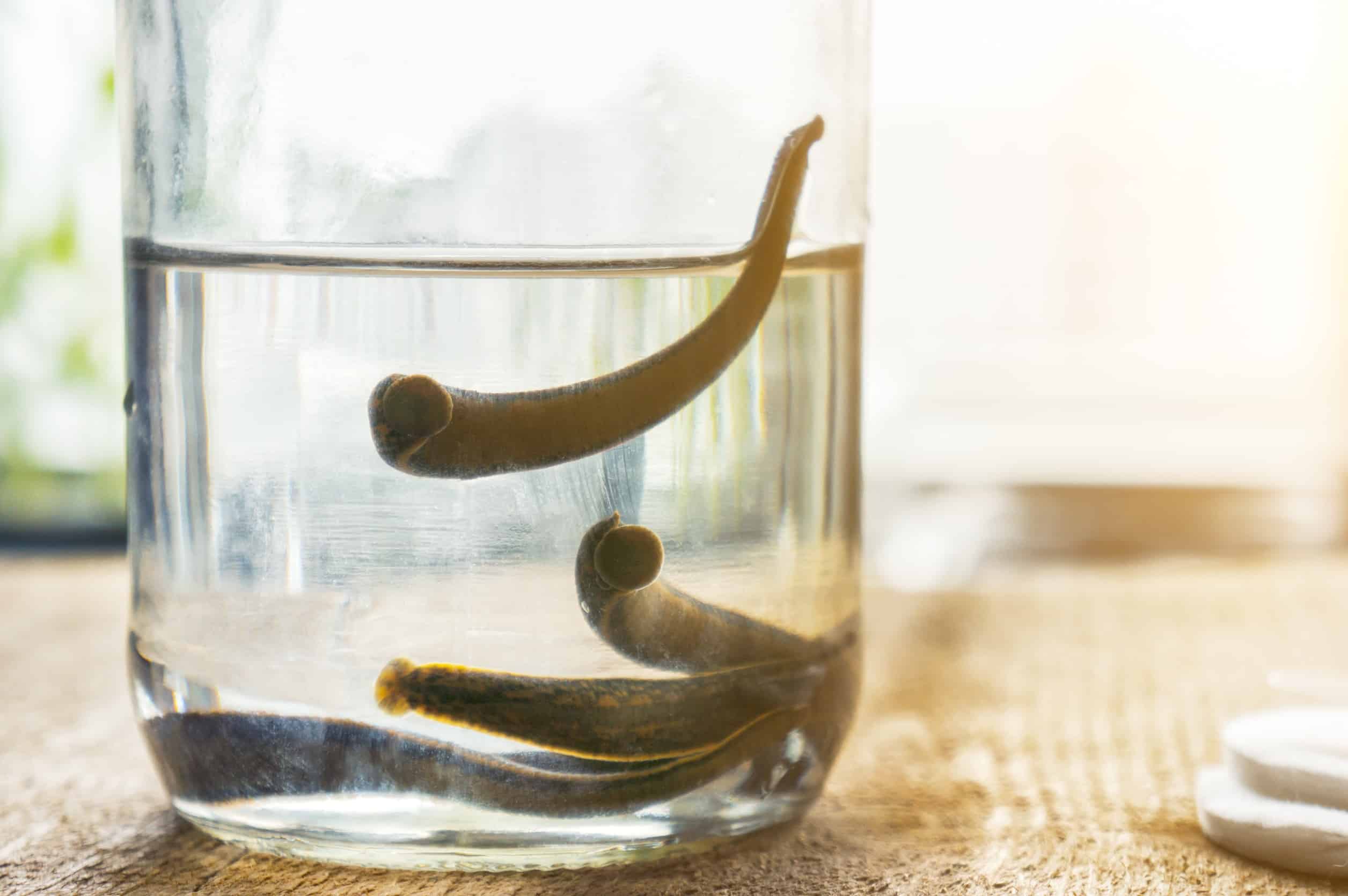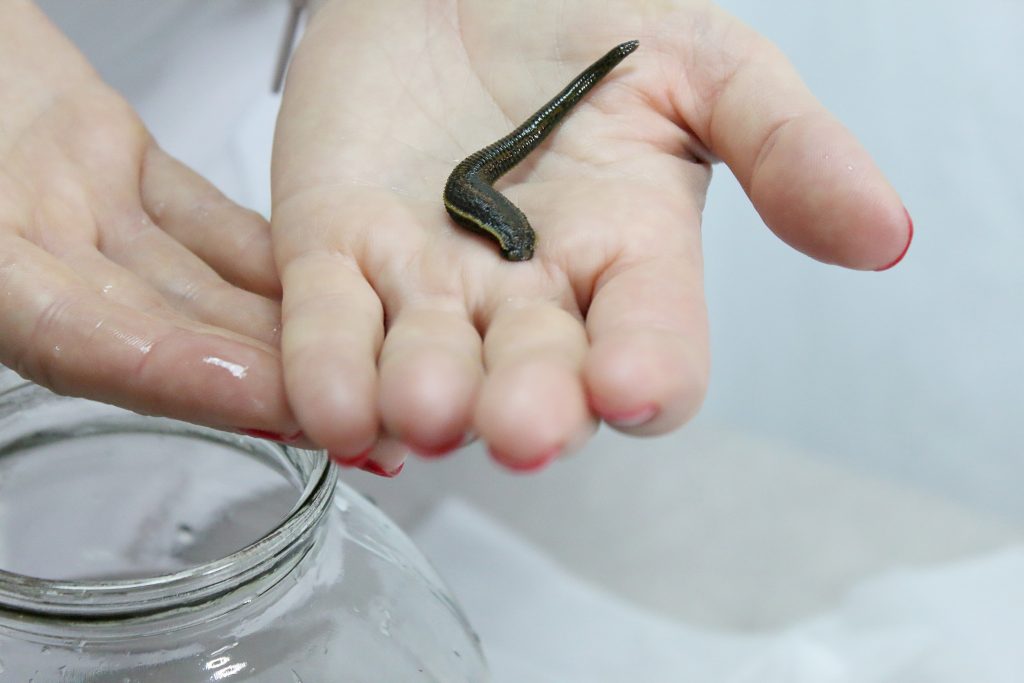Leeches are blood-sucking creatures that are often associated with disgust and fear. So it’s hard to imagine a situation where someone would need to eat them to survive.
They are not a typical choice of food, so most people aren’t aware that they are a decent source of protein and other nutrients.
But if you ever find yourself in dire circumstances, stranded in the wilderness without any source of food, you can eat leeches to get some much-needed sustenance.
While it may not be the most appetizing thought, knowing how to prepare and consume leeches could mean the difference between life and death.
Of course, it’s important to note that consuming leeches should only be done in extreme situations and with caution, as they may carry harmful bacteria or parasites.
In this article, we’ll explore how to prepare leeches safely for consumption, including the risks involved in consuming them. So whether you’re curious, preparing for future emergencies, or just looking to expand your unique culinary repertoire, this guide will have everything you need.
Nutritional Value of Leeches

Leeches are often seen as repulsive creatures, but they may contain various nutrients that are great to have in survival situations. Listed below is everything you need to know about the nutritional value of leeches and their potential as a food source.
Protein
Like earthworms, leeches are a good source of protein, which is necessary when you haven’t eaten in a while during survival in the wild.
Protein is not only essential for maintaining and repairing tissues but also for energy production. Without it, your muscles will begin to break down, and you will start to feel weak.
Furthermore, consuming protein is satiating and can help you feel full, which is very important to remember when food is scarce.
Fat
Leeches also contain fat, so they are great in situations when you don’t have access to foods rich in carbohydrates. Having this concentrated source of energy is crucial for your overall health during emergencies.
Iron
Leeches are rich in iron, an important mineral that is essential for the production of red blood cells. As such, eating them could help maintain your endurance and energy levels after a tiring day.
Because the nutritional value of leeches may vary depending on the species and environment in which they are found, it is crucial to conduct one’s own research before attempting to consume leeches in general.
Risks and Precautions of Eating Leeches
While leeches may offer a potential source of nutrition, it is important to understand that there are potential risks involved if you will try to consume them. Here are something that you have to look out for before eating leeches:
Bacteria
Like snails, leeches are known to carry the harmful bacteria “Aeromonas hydrophila” in their gut. When ingested by humans, they can cause symptoms such as diarrhea, vomiting, and fever.
While infections caused by Aeromonas hydrophila are not fatal in general, they can lead to severe infections for people with weakened immune systems.
So if you have a medical condition of some sort, it would be a lot better for you to refrain from eating leeches.
Parasites
Leeches may also carry parasites, such as blood flukes, which can cause serious health problems.
When these parasitic worms are ingested by unknowing individuals, they can cause a serious medical condition called schistosomiasis which can lead to liver damage or kidney failure down the line if left untreated.
It is important to avoid consuming leeches that are found in polluted and contaminated water sources to avoid these potential health problems.
Furthermore, try to avoid consuming large amounts of leeches in one sitting. Give your body some time and see how it reacts before eating them again.
Preparing Leeches for Consumption
Before trying to eat leeches, it is extremely important for you to take some necessary precautions to reduce the risk of bacterial or parasitic infections.
This includes cleaning the leeches thoroughly by washing them in clean water. Do so meticulously, so you can be sure that all the debris and dirt have been removed.
While it is technically possible to eat them raw, it is recommended that you cook them thoroughly, preferably by boiling or frying them.
Boiling leeches in salted water for several minutes is a great method to kill off the eggs or parasites inside them prior to consumption.
Aside from boiling, leeches can also be dried and roasted. In fact, they can also be incorporated into various recipes, such as soups and stews.
In China, roasted leeches are often seasoned with chili and pepper. But in Thailand, it is often combined with some garlic, shallots, coconut milk, and fish sauce to create a delicious soup.
So if you are looking for possible ingredients that can mask the leeches’ natural unpleasant and slimy taste, those ingredients are a good place to start.
Final Thoughts
While leeches may not be a typical and popular food choice, they can provide a source of nutrition in emergency situations. However, it is very important that you know the potential risks when consuming them.
By following the tips and guidelines mentioned in this article, you can reduce the risk of infection and safely eat them when needed.
Leeches aren’t for everyone, but if you are willing to try them, you should try to incorporate them into traditional dishes from Thai or Chinese cuisines to make the experience more palatable.

